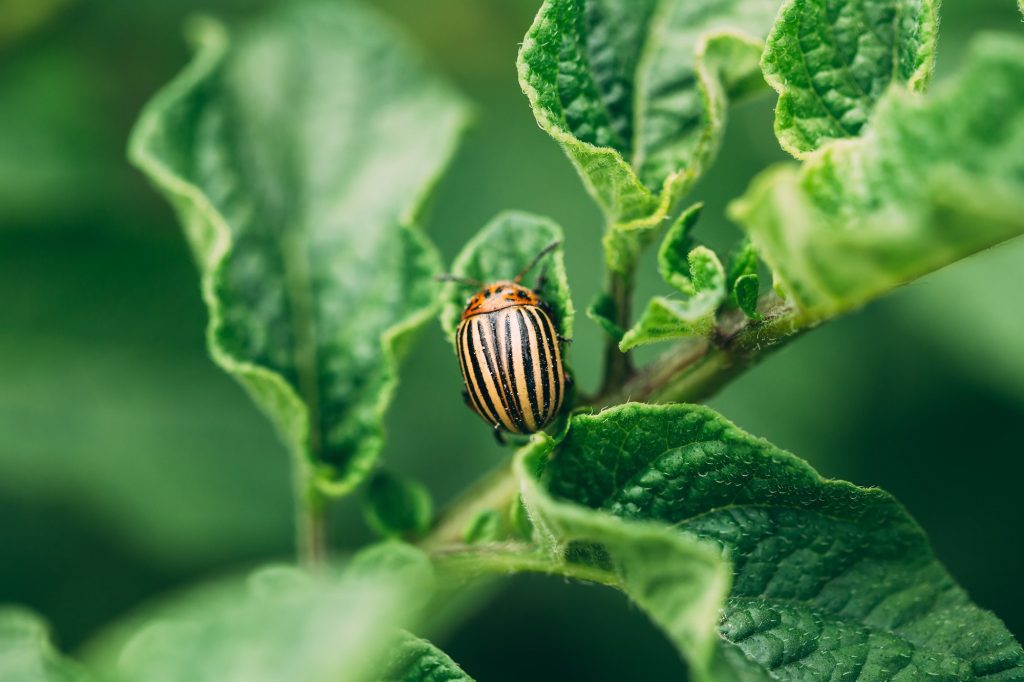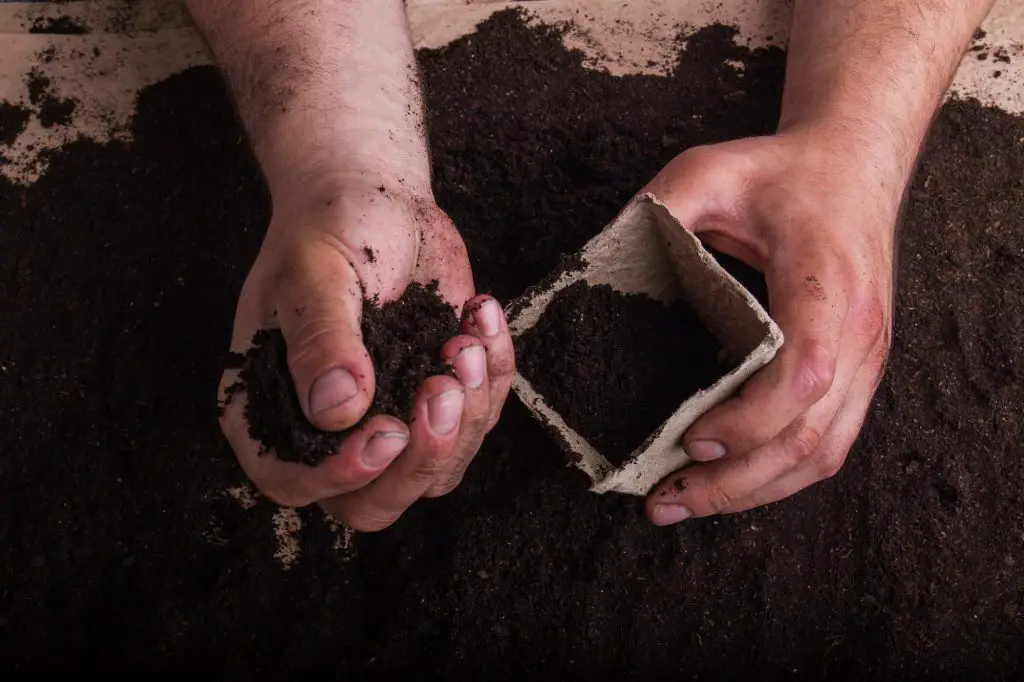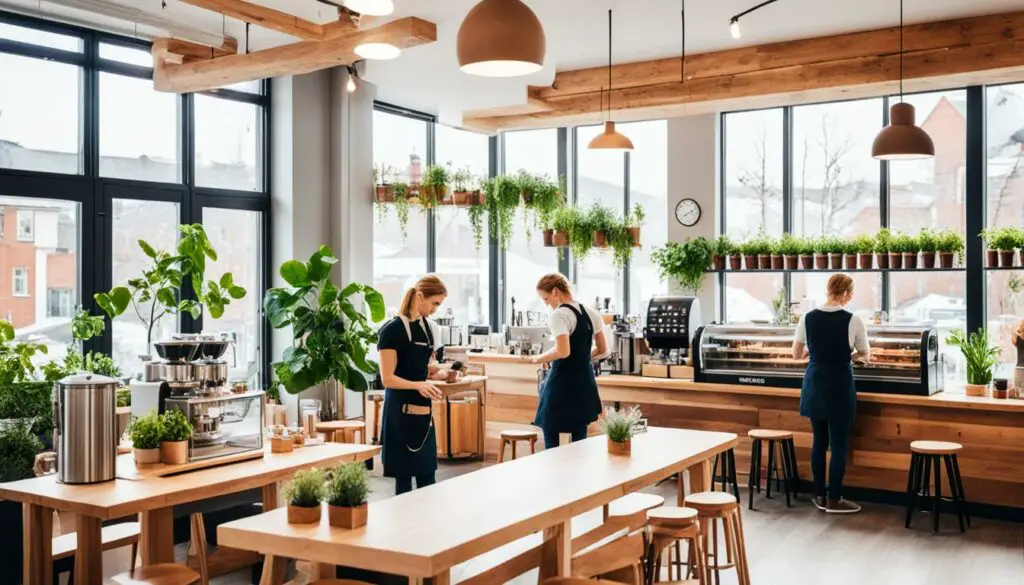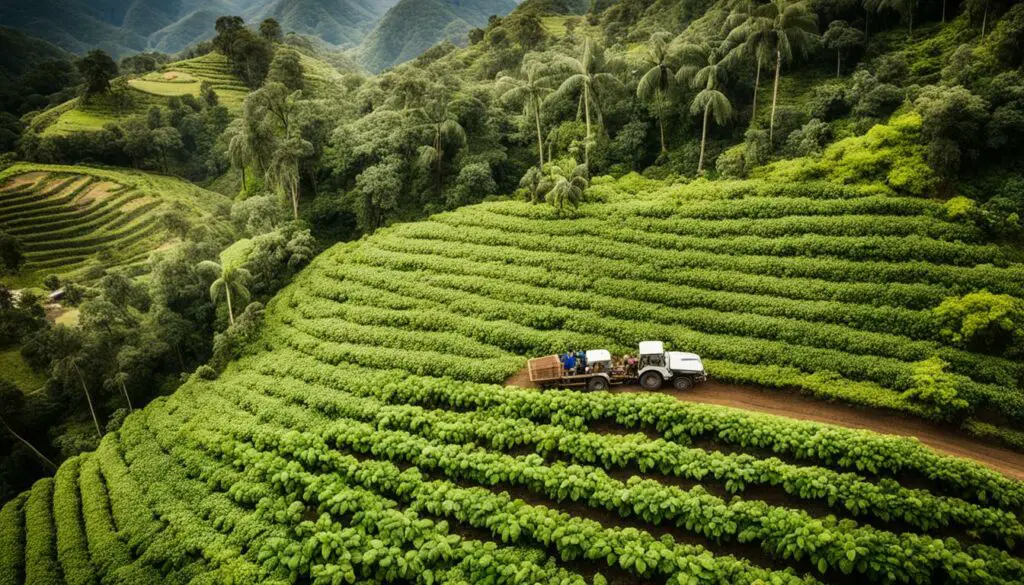If you’re a coffee drinker, you probably have a lot of coffee grounds left over. And, if you’re like us here at BushyBeard, then you are probably looking for ways to be more sustainable, so you might be wondering if there are ways to use those coffee grounds in the garden.
Well, it turns out that coffee grounds can actually be really beneficial for your plants! They can help improve drainage, act as a mulch to keep moisture in, and even deter pests. So if you’re looking for ways to be more sustainable and save some money, read on to find out how to use coffee grounds in the garden!
Coffee grounds as fertilizer
If you’re a coffee drinker, you probably have a steady supply of coffee grounds available. And if you’re looking for ways to be more sustainable in the garden, using coffee grounds as fertilizer is a great option.
Coffee grounds are rich in nitrogen, which is an essential nutrient for plants. They also contain other nutrients like phosphorus and potassium, as well as beneficial microbes that can help improve soil health.
To use coffee grounds as fertilizer, simply work them into the soil around your plants. You can also add them to your compost pile. Just be sure to mix them in well, as too much coffee ground can make your compost acidic.
If you don’t have a garden, or if you just want to make use of those coffee grounds, there are plenty of other ways to put them to good use. Check out this list of 3 great ways to use coffee grounds around the house and in the garden.
Coffee grounds as a mulch
Coffee grounds can be a great mulch for your garden. Not only do they help to regulate moisture levels and prevent weed growth, but they also add nutrients to the soil as they break down. Coffee grounds also help to improve drainage and aeration in the soil, making it more productive. In addition, coffee grounds can help to attract beneficial insects, such as worms and ladybugs, to your garden. And best of all, they’re free! So if you’re looking for an environmentally friendly way to mulch your garden, consider using coffee grounds.
Coffee grounds as pest control

As any gardener knows, pests can be a major problem. Not only do they damage plants, but they can also spread disease and lead to poor crop yields. Fortunately, there are a variety of ways to control pests, and one of the most effective is using coffee grounds. Coffee grounds contain high levels of nitrogen, which helps to deter pests. In addition, the caffeine in coffee grounds acts as a natural insecticide, killing many common garden pests. Additionally, coffee grounds can help to improve the overall health of your plants. The grounds are rich in nutrients and minerals, which can help to promote strong growth and resist disease. As a result, using coffee grounds as pest control is an effective and environmentally friendly way to keep your garden healthy and thriving.
Other uses for coffee grounds in the garden
As we have said, while most people think of coffee grounds as waste, they can actually be quite useful in the garden. Used coffee grounds can help to improve drainage, reduce compaction, and add essential nutrients to the soil. In addition to the ways listed above, coffee grounds can also help to keep away pests like slugs and snails. As a result, there are many ways to make use of coffee grounds in the garden. In fact, with a little creativity, they can be a valuable asset to any gardener.
Here are a few ideas for using coffee grounds in the garden:

Add coffee grounds to your compost pile. Coffee grounds are a great source of nitrogen, which is an important nutrient for plants. Adding coffee grounds to your compost will help to improve the quality of your compost.
Use coffee grounds as fertilizer. Coffee grounds can be used as a fertilizer for plants. They contain nutrients that plants need, such as nitrogen and phosphorus. Be sure to mix the coffee grounds with other organic matter before applying them to your plants.
Finally, anyone who has ever dealt with pests knows that getting rid of them can be a difficult and frustrating task. Fortunately, there are a number of natural ways to deter pests, including using coffee grounds.
The reason why they work is that, coffee grounds contain caffeine, which is toxic to many common pests. When sprinkled around the perimeter of a garden, they can help to keep pests away. In addition, coffee grounds can be used as a natural fertilizer. They are rich in nitrogen and other nutrients that can help to promote plant growth. As a result, coffee grounds can be an effective and eco-friendly way to deter pests and fertilize your garden.
Conclusion
We hope you enjoyed our tips on how to use coffee grounds in the garden. Coffee grounds are a great way to add nutrients to your soil and help your plants grow. If you have any coffee ground gardening tips of your own, be sure to share them in the comments below!












